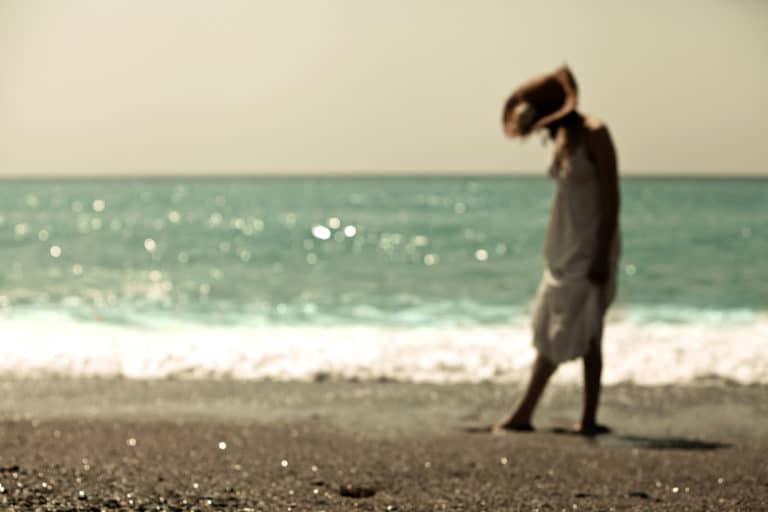
Image by ArTeTeTrA/Flickr, Attribution-NonCommercial-NoDerivs.
Struggling to Find the Silver Lining in Severed Friendship
“They taught me that maturity was the ability to live with unresolved problems.”
—Anne Lammott, Stitches: A Handbook on Meaning, Hope, and Repair
I’m able to adjust to many of life’s cruelties with surprising speed. Like most humans, I’m surprised at how quickly something that seems intolerable at first — an injury, a terrible collaborator, an embarrassing rejection — eventually becomes something that I learn to live with, beside, amongst.
Also, like most humans, I usually manage to tell a redemptive story about my hardship. I’m continually amazed at how good we are at making meaning out of shit day: I didn’t get the job because, ultimately, it wasn’t really in line with my true calling. She broke up with me because she was limited and now I’m liberated to find a better match. Rain on a wedding day is good luck.
As resilient as I experience myself to be in so many situations, as good as I am at drawing a thick silver lining around an otherwise dark moment, there is one particular version of life’s pains that I feel weak and stupid about processing: severed friendships. Throughout my life I’ve had a few very dear friends that either drifted away on an ever more quickly moving river of miscommunication and disappointment, until I couldn’t see them anymore, or vanished in one fell swoop — as if abducted by alien invaders.
I used to think my struggle was with the nature of the first kind of loss. I’m someone who craves resolution. I like to know what’s expected of me and I like to show up and I like to have clarity. I want everyone to have the same story about something, especially if I’m involved.
When I’ve had good friends that drifted away into a fog of time and space and words left unspoken, I’ve been hurt, but I always reasoned that part of my hurt was really frustration with the lack of clarity. If only we had just had the courage to face one another like grown women and made a mutual decision that the relationship no longer served us.

But I’ve also lost a friend in a very resolute way — not the sort of grownup woman version of my fantasies, unfortunately, but over email (ugh) — and the finality of it actually doesn’t turn out to feel better. It just feels different. Rather than wondering if she has a different story about our friendship, about me, than I do, I know she does. Instead of the slightly more comfortable state of confusion that I’ve had with dissolving friendships, I have to reckon with the harsh reality that two people who love one another deeply, who have known one another through years and addictions and cross-country moves and boyfriends and books, can hit an impasse where traveling side by side is no longer possible.
I’ve also had friends that drifted out into the fog, only to appear years later. They’ve got new haircuts and scars, new partners and careers, and yet here they are: their essence intact, their quirks as familiar to me as if we haven’t spent a day apart. So I understand that even in the seemingly finite there is no trustworthy resolution. It gives me some solace — this not really ever knowing, even as I also sort of hate the fact that all human relationships resist reliable conclusion. Even death proves to be an unreliable end; so many of us keep wrestling with our dead long after they’ve technically left.
I think I’m so bad at letting friendships go — either suddenly or gradually — because it feels injurious to me to stop loving someone once I have started, like I’m cutting off a limb, and yet blood will just keep flowing in that direction. I’ve never stopped loving any of the friends I’ve lost. At times, I’ve felt misunderstood and projected upon, and as a result, angry. But the anger can co-exist next to the love. I wonder what they’re eating for breakfast. I wonder what they’re reading. I wonder if there was anything redemptive about our parting: Have I become a better person? A better friend? Do I see myself accurately? Do I expect too much? Have I learned to say sorry in a way that someone can hear? Do I understand how to nurture a friendship through transition with more grace?
And you see, there I go, desperately seeking the silver lining. If I’m going to lose friends, at least I want to gain insight. But I also know I can’t wear the insight like an armor, protecting me from future loss. Some friendships erode; it’s a painful but inevitable part of life. It makes room for new relationships, new emotional risks, new chemistry. It helps expunge old toxins, stubborn patterns, stale air.
Someone recently told me the theory that you shed and replace the majority of your friendships every seven years. I hate that idea. Yet, I understand why it’s an oft-repeated maxim. We make these big life transitions and sometimes it’s hard to hold one another’s hands while we’re traveling at different speeds in different directions. Sometimes we stop speaking the same language. Sometimes our way of seeing one other stays frozen in the past, even as we barrel roll into the future. And so we part. And we mourn. And there is no resolution. And this, my friends, I’m still trying to reckon with.

